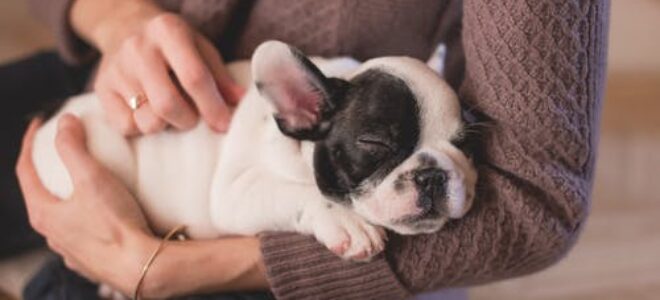Understanding the Importance of Early Puppy Training
“Puppies are like sponges, ready to soak up knowledge and form habits.” Isn’t that the cutest sponge you can think of? Right from their innocent eyes to their boundless energy, everything about them makes you want to cuddle them tight. But, as all cute things come with responsibility, so does your bundle of joy. This is where training, and importantly, early dog training comes into the picture. Let’s dive into understanding why that’s important.
Unlocking Your Puppy’s World: Understanding Puppy Behavior and Their Communication Signs
We cherish our pups but do we understand them? Puppy communication isn’t just about their barks and wags. It involves several subtle signs and behavioral cues. “Ever noticed your pup put its tail between its legs? Or the way it pricks up its ears?” These are all parts of their unique language, and understanding them will help you form a stronger bond.
Puppy Training: Starting Early but When is Early?
“Ever wondered – When is the perfect time to start training your new puppy?” Just like humans, puppies also have developmental stages. The general guideline is to start training your furball as soon as it is 7-8 weeks old. From potty training to instilling basic etiquettes, starting early can help your pup seamlessly blend into your world. For more information, consider reaching out to local dog training experts who can guide you with personalized puppy training programs.
Essentials of Leash Training and Housebreaking
Prepping your little furball to behave well goes beyond adorable tricks. Housebreaking your puppy is a keen part of it. This also includes teaching your puppy to walk on a leash – it’s like teaching a toddler to walk. Begin with shorter five-minute walks, gradually increasing the time. Remaining patient and being consistent are key in this step of the puppy journey.
Going Social: The Importance of Early Socialization
Your puppy’s world shouldn’t only revolve around you; it should include other pooches and people too. Taking your pup to a doggy daycare in York, PA, can be a great way to expose it to different environments and pets. Here, your pup will have the chance to socialize, learning proper behaviors around other dogs and humans.
Power of Praise: Using Positive Reinforcement in Training
When it comes to training, the carrot works better than the stick. Positive reinforcement is an effective way to encourage desired behavior. “Remember the joy when you were rewarded as a child for a job well done?” Your puppy feels that too. Whenever your pup follows a command or behaves well, treat it with a reward.
Nipping the Bad Behaviors in the Bud: Preventing Future Problems
Just like a small pebble can spiral into a snowball, untreated bad habits in a pup can become problematic behaviors in an adult dog. Early dog training ensures that these habits are identified and rectified in their budding stage itself.
More than Training: Building Bonds
Your puppy isn’t just a pet, it’s family. And just like with any other member, you want to form a strong bond with your puppy. Training offers a beautiful opportunity for this. The process involves constant interaction, making you understand your pup better while it reciprocates your admiration. Apart from home-based training, there are options for professional services like dog boarding services that ensure your furry friend is well-looked after in your absence. Facilities such as the Central Bark in Grayslake, IL, provide a range of services, including puppy and adult dog training, and cater to your pooch’s needs.
Conclusion
“I’ve often heard, raising a puppy is like raising a child,” and there’s considerable truth in this statement. Training and socializing your puppy from a young age does involve a lot of commitment and patience. However, by putting in the time and effort now, you will have laid the groundwork for a well-behaved, socialized and loving adult dog that will provide you with companionship and joy for many years to come.




